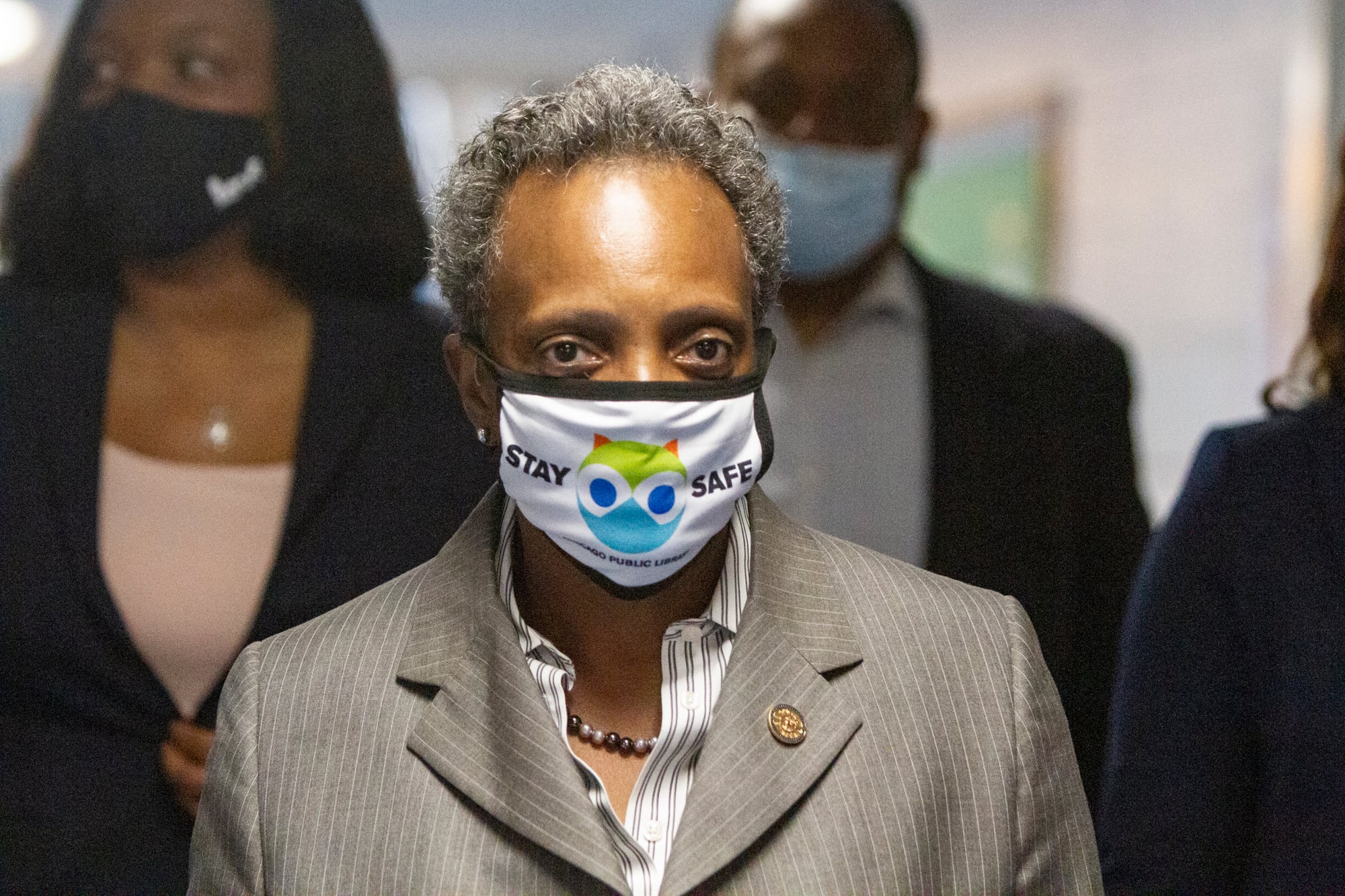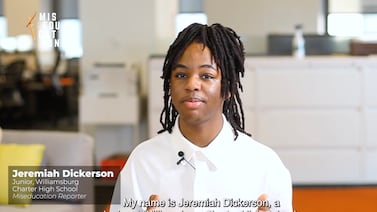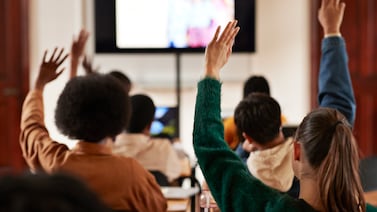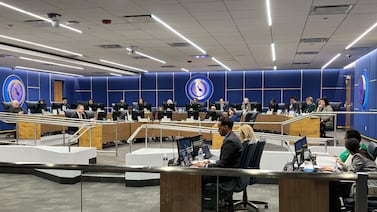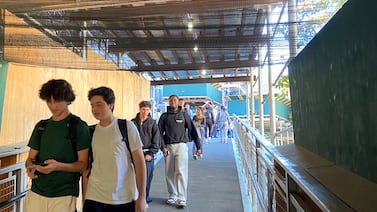Chicago Mayor Lori Lightfoot said Monday the city will stay the course in weighing a phased-in reopening of schools — despite a sharp increase in COVID-19 cases that officials defined as a second surge.
Lightfoot held a press conference with public health officials to sound alarms about a “dramatic uptick” of cases in the city across ages and demographic groups. But the mayor said that data from Catholic and other private schools, which reopened in August, do not suggest that schools have been significant sites of coronavirus transmission. And she spoke again about a belief that she and district leaders have highlighted: that remote learning is failing the district’s youngest and most vulnerable learners despite Chicago’s efforts to improve it.
The district announced last Friday that it is gearing up to bring pre-kindergartners and some students receiving intensive special education services back into school buildings five days a week at some point after the school year’s second quarter starts Nov. 9. All other students will continue with all-virtual learning at least until January.
“Remote learning works for some,” Lightfoot said. “It works quite well. But for some it doesn’t work.”
Lightfoot stressed the district has not made any final reopening decisions and will let public health data guide it in the coming weeks. It is slated to survey families with children in pre-kindergarten and special education “cluster” programs Wednesday about their interest in switching to in-person learning.
The district’s teachers union has strongly opposed the district’s plans, and its leaders took to social media Monday to hold up the new surge data from the city as evidence that reopening schools would be premature and risky.
The union held a virtual town hall for its members Sunday night, during which union officials heard from teachers anxious about a possible return to schools, and promised to make their concerns known to city leadership.
“Every single resource in our union is being directed towards this,” union vice president Stacy Davis Gates said Sunday night.
Still, with complaints from the union that they weren’t consulted before Chicago Public Schools announced its fall reopening plan, Thad Goodchild, the union’s legal counsel, said on Sunday’s call that the union was exploring legal avenues to address their concern. That could include a request for the union to hire their own buildings safety inspector. “CPS only reaches agreements with us when they are forced to do so,” Goodchild said.
Also on Sunday, a coalition of progressive elected officials from Chicago’s city council, and county and state government, many of whom have worked closely with the union or whose campaigns were supported by union-affiliated organizations, have signed a letter asking for clearer information on a testing and contact tracing plan for any return to school.
Asked about the letter, Lightfoot said she invites the elected officials to engage with her directly about their concerns.
The city’s seven-day positivity rate has jumped above 5% for the first time in months, with rates approaching 20% in some city zip codes. The mayor and public health commissioner Allison Arwady urged residents to redouble efforts to limit the spread, suggesting they might have to reimpose stricter restrictions on businesses and public gathering in coming weeks if the numbers continue to go up.
But Lightfoot reiterated that the city has studied closely the experience of parochial and private schools that reopened: “We are not seeing the schools as a source of spread.”

